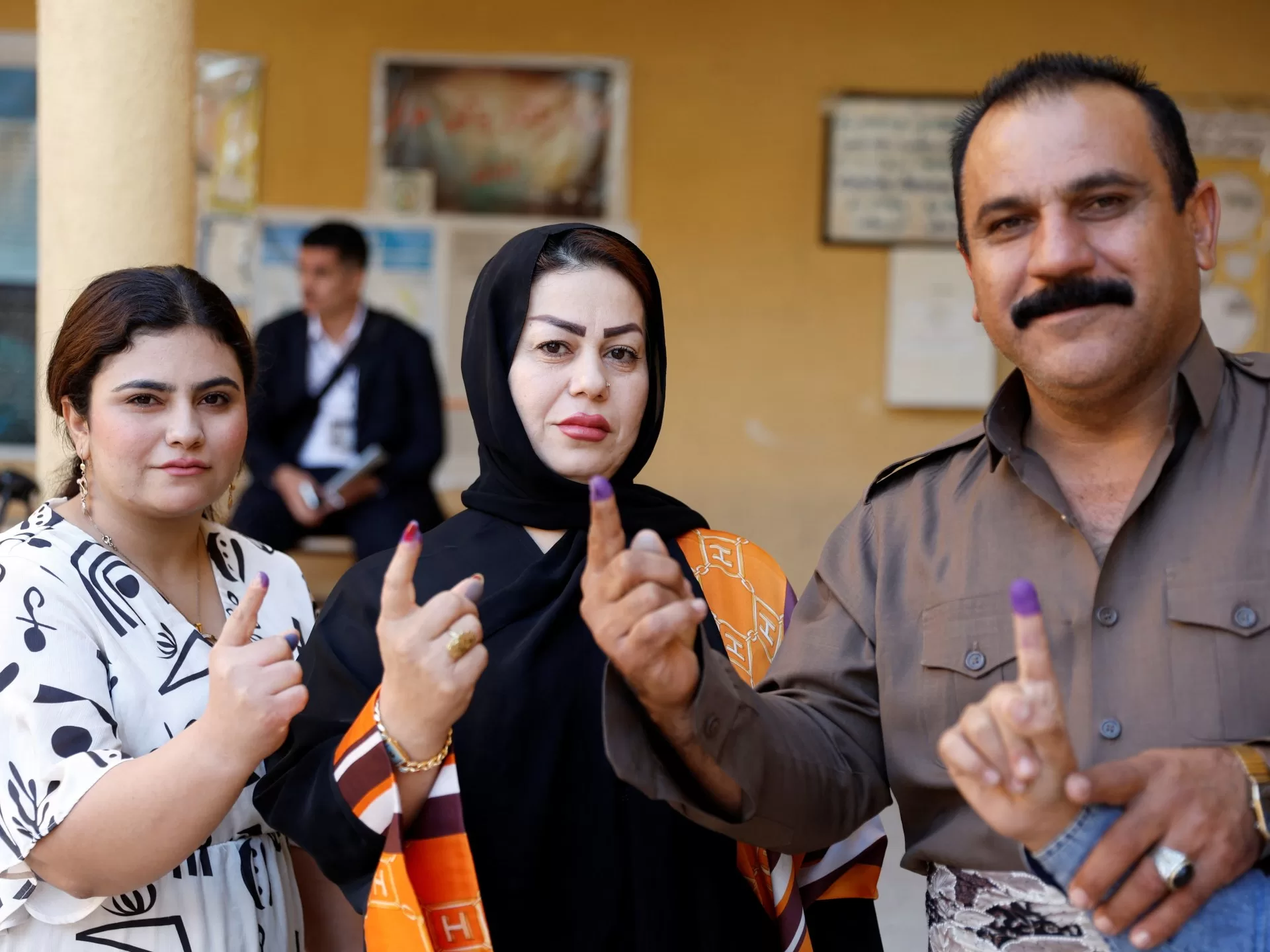More than 1,000 candidates, including 368 women, are vying to get elected to the 100-seat regional parliament.
Voters in Iraq’s semi-autonomous northern Kurdish region are casting their ballots in delayed parliamentary elections amid disenchantment with political leaders and economic instability.
The elections on Sunday are for 100 members of parliament, who will then pick a speaker, a president and a prime minister for Iraqi Kurdistan, which gained self-rule in 1991.
Of the region’s 6 million inhabitants, 2.9 million are eligible to vote for the MPs, including for 30 women mandated by a quota.
More than 1,000 candidates are running, including 368 women.
Iraqi Kurdistan presents itself as a relative oasis of stability in the turbulent region, attracting foreign investors due to its close ties with the United States and Europe.
However, activists and opposition figures contend that the region faces the same issues affecting Iraq as a whole, including corruption, political repression, cronyism among those in power, and difficulties in the economy.
Reporting from the Iraqi capital Baghdad, Al Jazeera’s Mahmoud Abdelwahed said the turnout and outcome will reflect “if indeed there’s voter apathy”.
He also said the regional government is seeking to pressure the central government in Baghdad to release a portion of its budget intended for the Kurds, and to allow the reopening of major oil pipelines.
The parliamentary elections, which were supposed to be held in 2022, have been repeatedly delayed due to disagreements between the two dominant parties, the Kurdistan Democratic Party (KDP) and the Patriotic Union of Kurdistan (PUK).
The KDP is controlled by the powerful Barzani family while the PUK is controlled by the Talabanis.
With opposition parties weak, the KDP and PUK are likely to extend more than three decades of power-sharing.
The KDP is the largest party in the outgoing parliament, with 45 seats against 21 for the PUK.
“We hope that a unified regional government will be formed as soon as possible and that the situation of citizens will move for the better,” said Nechirvan Barzani, president of Iraqi Kurdistan, after casting his vote in the Kurdish capital, Erbil.
Despite holding election rallies and mobilising their patronage networks, experts say there is widespread public disillusionment with the parties, exacerbated by the region’s bleak economic conditions.
The Kurdish region faces significant economic issues, despite its oil wealth, including delayed payment of salaries to civil servants, fluctuating oil prices, and budget cuts from Baghdad. Many blame political leaders for mismanagement.
“People want to have electricity and get paid their salary on time, and to have more jobs. This is all they want,” voter Ghazi Najib told The Associated Press news agency.
Corruption is another central issue. For years, the regional government has faced allegations of nepotism and lack of transparency. Many voters, particularly in the younger generation, are calling for reforms to address these concerns.
Opposition parties such as New Generation and a movement led by Lahur Sheikh Jangi, a dissident from the Talabani clan, may gain from a protest vote, said Sarteep Jawhar, a PUK dissident and political commentator.
In the last regional elections in 2018, voter turnout was 59 percent.
Polling stations are expected to close at 6pm (15:00 GMT).
